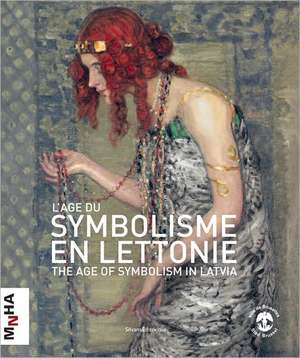The Age of Symbolism in Latvia
Editat de Dace Lambergaen Limba Engleză Hardback – 28 feb 2011
Preț: 204.58 lei
Nou
Puncte Express: 307
Preț estimativ în valută:
39.15€ • 40.39$ • 32.67£
39.15€ • 40.39$ • 32.67£
Carte indisponibilă temporar
Doresc să fiu notificat când acest titlu va fi disponibil:
Se trimite...
Preluare comenzi: 021 569.72.76
Specificații
ISBN-13: 9788836617234
ISBN-10: 8836617239
Pagini: 96
Dimensiuni: 239 x 287 x 15 mm
Greutate: 0.88 kg
Editura: Silvana Editoriale
ISBN-10: 8836617239
Pagini: 96
Dimensiuni: 239 x 287 x 15 mm
Greutate: 0.88 kg
Editura: Silvana Editoriale
Descriere
Though its best known adherents are Redon and Moreau, Frenchmen, the late-nineteenth-century Symbolist movement in painting found some of its most fascinating expressions in Eastern and North-Eastern Europe. Latvia in this era was radically transformed by an expansion of industry and its increased prosperity naturally impacted its arts, in the flowering of Symbolism and Art Nouveau. Published on the occasion of exhibitions at the City Hall of Brussels and the National Museum of History and Art in Luxembourg, the catalogue illustrates this radiant epoch in Latvia's cultural and artistic past. It features works by some of the major representatives of Latvian Symbolism including Janis Rozentals, Vilhelms Purvitis and Johann Walter, along with their contemporaries, Jekabs Belzens, Aleksandrs Romans and Rudolfs Perle. The book also includes an essay by Dace Lamberga.
